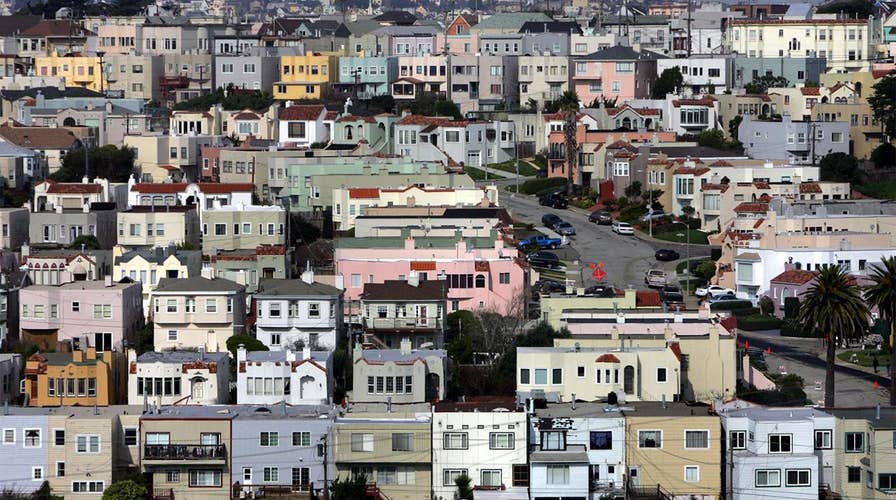San Francisco letting non-citizens vote in school election
California city is allowing illegal immigrants to vote in a school board election. William La Jeunesse explains.
San Francisco is the largest American city to let illegal immigrants and other noncitizens vote in local elections – but the controversial program hasn’t exactly boosted turnout yet.
According to The Associated Press, just 35 noncitizens have registered since the restrictions were lifted.
Local officials suggest residents who might otherwise consider registering are worried the Trump administration would learn their identities.
"We're in an unprecedented arena of animosity toward our immigrant community, and that has really stopped people from voting," said San Francisco Supervisor Sandra Fewer, a former member of the school board and a supporter of the noncitizen voting measure.
Noncitizen voting remains illegal in state and federal elections – and most cities. But San Francisco allows noncitizens to participate in the school board race.
Voters in 2016 approved the measure allowing parents or guardians of a child in San Francisco schools to vote for school board representatives regardless of immigration status.
But as a ‘sanctuary city,’ San Francisco as a matter of policy is cautious toward federal immigration officials – an approach that extends to the way the city is implementing noncitizen voting.
The city election department has warnings on its registration form and on flyers saying voter information would be public and could be seen by U.S. Immigration and Customs Enforcement and other agencies.
It's apparently having an impact.
The San Francisco School District does not keep a tally of its noncitizen parents or children but reports that 29 percent of its 54,000 students are English learners, with the majority listing Chinese or Spanish as their first language. At least 40,000 people in the city of 885,000 are in the country illegally, according to government estimates.
Harmeet Dhillon, a San Francisco attorney and committeewoman for the National Republican Committee, said allowing noncitizens to cast ballots devalues the rights of citizens.
"Voting is a sacred privilege and a sacred right of citizens. It should not be trivialized for political gain," she said.
Dhillon said she is not surprised that only a few noncitizens have registered because voting could jeopardize their chances of attaining citizenship in the future.
"By voting people are taking a big legal risk, and for what return?" Dhillon asked.
San Francisco is not the first place with such a measure. In Maryland, where an estimated 15 percent of residents are foreign-born, at least six cities allow noncitizens to vote in local elections.
In Massachusetts, the cities of Amherst, Cambridge, Newton and Brookline have advanced laws to allow noncitizen voting, but they cannot implement them because they need the approval of state lawmakers, who have not acted, said Ron Hayduk, an associate professor of political science at San Francisco State University who studies noncitizen voting laws.
"Noncitizen voting is a very contentious issue, and that's in part why it's not more widespread," Hayduk said.
In San Francisco, noncitizens who opt to vote will be listed on a separate roster from citizens and will get a ballot with just the school board contest, city elections chief John Arntz said.
The Associated Press contributed to this report.





